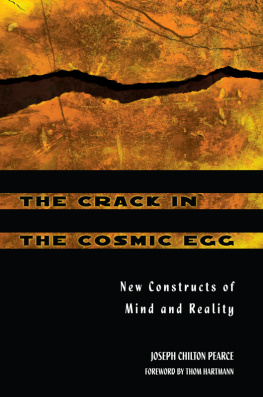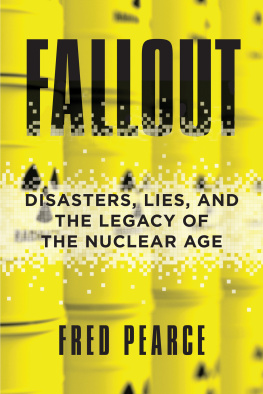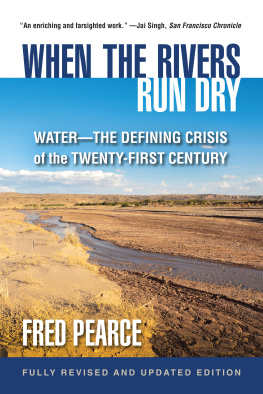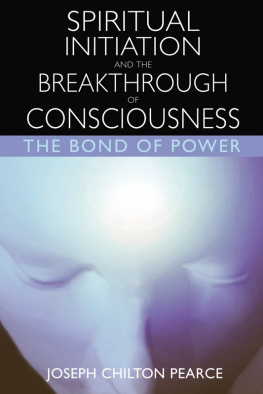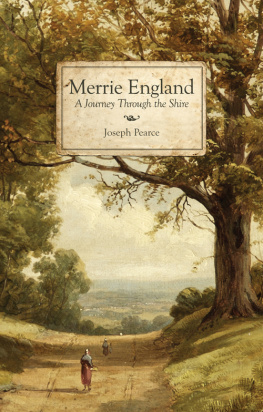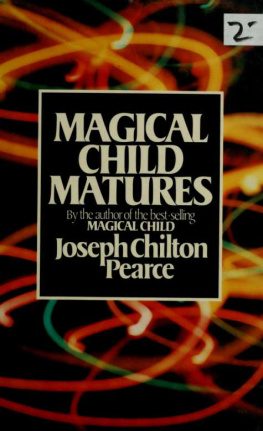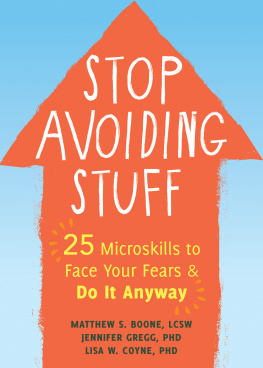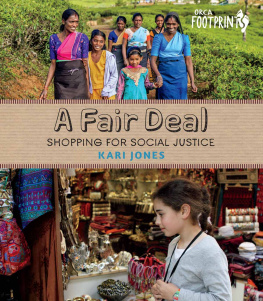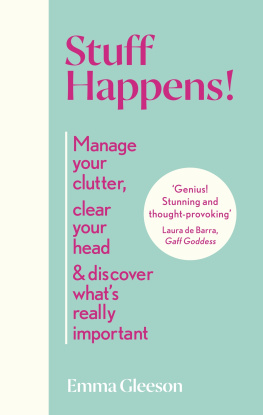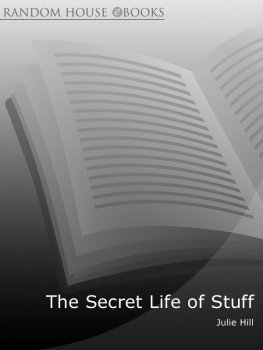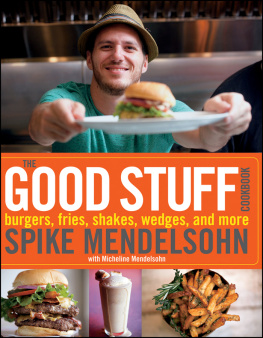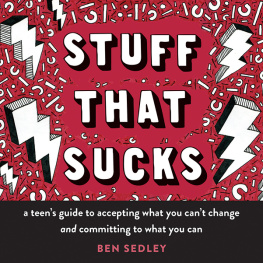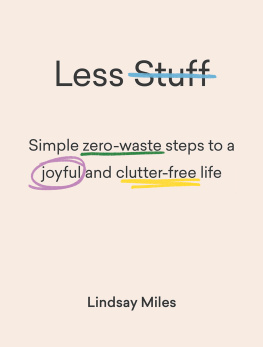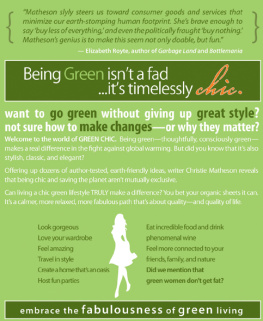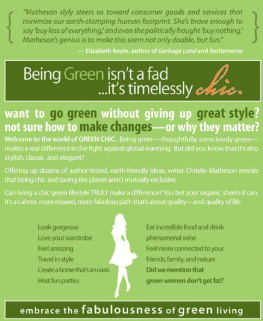Fred Pearce is an author and journalist. He is married with grownup children and lives in Wandsworth in London. For much of the time he works from home. But reporting about environment and development has taken him all over the world for publications such as New Scientist (where he is environment consultant), the Daily Telegraph (for whom he writes a regular blog), the Independent, Country Living, Geographical and the Ecologist.
Fred's travels to find where his stuff comes from took him to more than twenty countries, from Alaska to Australia, Brazil to Bangladesh, China to Kenya, Siberia to South Africa and Mauritania to the market down his street.
www.rbooks.co.uk/eden
Also by Fred Pearce
Published by Eden Project Books
Deep Jungle: Journey to the Heart of the Rainforest
When the Rivers Run Dry: What Happens
When Our Water Runs Out?
The Last Generation: How Nature Will Take
Her Revenge for Climate Change
This eBook is copyright material and must not be copied, reproduced, transferred, distributed, leased, licensed or publicly performed or used in any way except as specifically permitted in writing by the publishers, as allowed under the terms and conditions under which it was purchased or as strictly permitted by applicable copyright law. Any unauthorised distribution or use of this text may be a direct infringement of the author's and publisher's rights and those responsible may be liable in law accordingly.
ISBN 9781407033594
Version 1.0
www.randomhouse.co.uk
TRANSWORLD PUBLISHERS
6163 Uxbridge Road, London W5 5SA
A Random House Group Company
www.rbooks.co.uk
First published in Great Britain
in 2008 by Eden Project Books
an imprint of Transworld Publishers
Copyright Fred Pearce 2008
Map Encompass Graphics
Fred Pearce has asserted his right under the Copyright, Designs
and Patents Act 1988 to be identified as the author of this work.
This book is a work of non-fiction based on the experiences of the author. The author has stated to the publishers that, except in such minor respects not affecting the substantial accuracy of the work, the contents of this book are true.
A CIP catalogue record for this book
is available from the British Library.
ISBN: 9781407033594
Version 1.0
This electronic book is sold subject to the condition that it shall not by way of trade or otherwise, be lent, resold, hired out, or otherwise circulated without the publisher's prior consent in any form other than that in which it is published and without a similar condition including this condition being imposed on the subsequent purchaser
Addresses for Random House Group Ltd companies outside the UK
can be found at: www.randomhouse.co.uk The Random House Group Ltd Reg. No. 954009
The Random House Group Ltd makes every effort to ensure that the papers used in its books are made from trees that have been legally sourced from well-managed and credibly certified forests. Our paper procurement policy can be found at: www.randomhouse.co.uk/paper.htm
The author has offset emissions from air travel to research this book with Climate Care.
Typeset in 11/15pt Sabon by
Falcon Oast Graphic Art Ltd.
Printed and bound in Great Britain by
Clays Limited, Bungay, Suffolk.
24681097531
Every effort has been made to obtain the necessary permissions with reference to copyright material, both illustrative and quoted. We apologize for any omissions in this respect and will be pleased to make the appropriate acknowledgements in any future edition.
To Sarah
Part One
Introductions
1
Footprints: Me and My Stuff
We live in a charmed world. If we have money we can buy literally anything. And the majority of us live lifestyles undreamed of only a generation or two ago. One scientist I met recently told me he reckoned that the average household in Europe or North America has so many devices and such a variety of food and clothing that to produce the same lifestyle in Roman times would have required 6,000 slaves cooks, maids, minstrels, ice-house keepers, woodcutters, nubile women with fans, and many more.
I started thinking about that statistic. The scientist's point was that we now rely on machines and cheap energy to do the things that servants would once have done for an elite, while the rest of us went without. But of course it is not that simple. For one thing there are ecological consequences. We gouge out the Earth to find the materials to make those machines; and the cheap energy to run them is polluting our planet and warming our climate. And yet many of the servants are still there. Though now, rather than occupying the attics of grand houses, they are spread across the world, growing our food, making our machines and stitching our clothes.
People talk a lot about carbon footprints. But our personal footprints are much bigger than that. And they are social as well as ecological. The trouble is that, in our charmed world, we know little about what our footprints are. It all happens so far away. The people and the pollution that sustain us are invisible to us.
I want to change that. The purpose of this book is to discover the hidden world that keeps us in the state to which we have become accustomed. I have done that by exploring my own personal footprint. I have travelled the world to find out where the cotton in my shirt comes from, the coffee in my mug, the prawns in my curry, the computer on my desk, the phone in my hand, and much else. To discover who grows or mines or makes my stuff, and where that stuff goes after I have finished with it. And to find out whether I should be ashamed of my purchases and their impact on the planet, or whether I should be proud to have contributed to some local economy or given a leg-up to some hard-pressed community.
I have tried not to pick and choose my journeys too carefully. I simply took those that sounded potentially the most interesting. And certainly I made a point of not changing my way of living to avoid any embarrassments. These are true confessions. And I hope that in tracking down my footprints I will also have tracked down some of yours.
I estimate that I travelled some 180,000 kilometres on this journey, visiting more than twenty countries. It took me to the end of my street and the end of my planet, into the African rainforests and the Central Asian deserts, to Bangladeshi sweatshops and Chinese computer factories, to the brothels of Manila and the slums of Rio, to the summits of mountains, the Arctic tundra, the fishing grounds of the Atlantic and into the bowels of the Earth.
Along the way, I met an amazing cross-section of the more than 6 billion people with whom we share this planet. They included a handful of the richest and many of the poorest. It set me wondering as much about the past and future of our species as about the past and future of our planet. And, you may be surprised to learn, it left me with some optimism, about humanity and the huge potential we have to run our world better.
It is easy to be horrified by all the weirdness of humanity. The remote jungle tribes and urban sects, the horrible regimes in North Korea and Burma and elsewhere, the fanatics and the fantasists, the warlords and hoodlums, the obscene wealth of the super-rich and the abject state of the super-poor and those struck down by AIDS.
But in my travels I mostly found the commonplace billions of ordinary people, mostly poor but not starving; mostly ill-educated but not uneducated. The resulting book is a kind of chronicle of humanity as represented by the people who grow and make and dispose of the things that I use and consume in my daily life.


